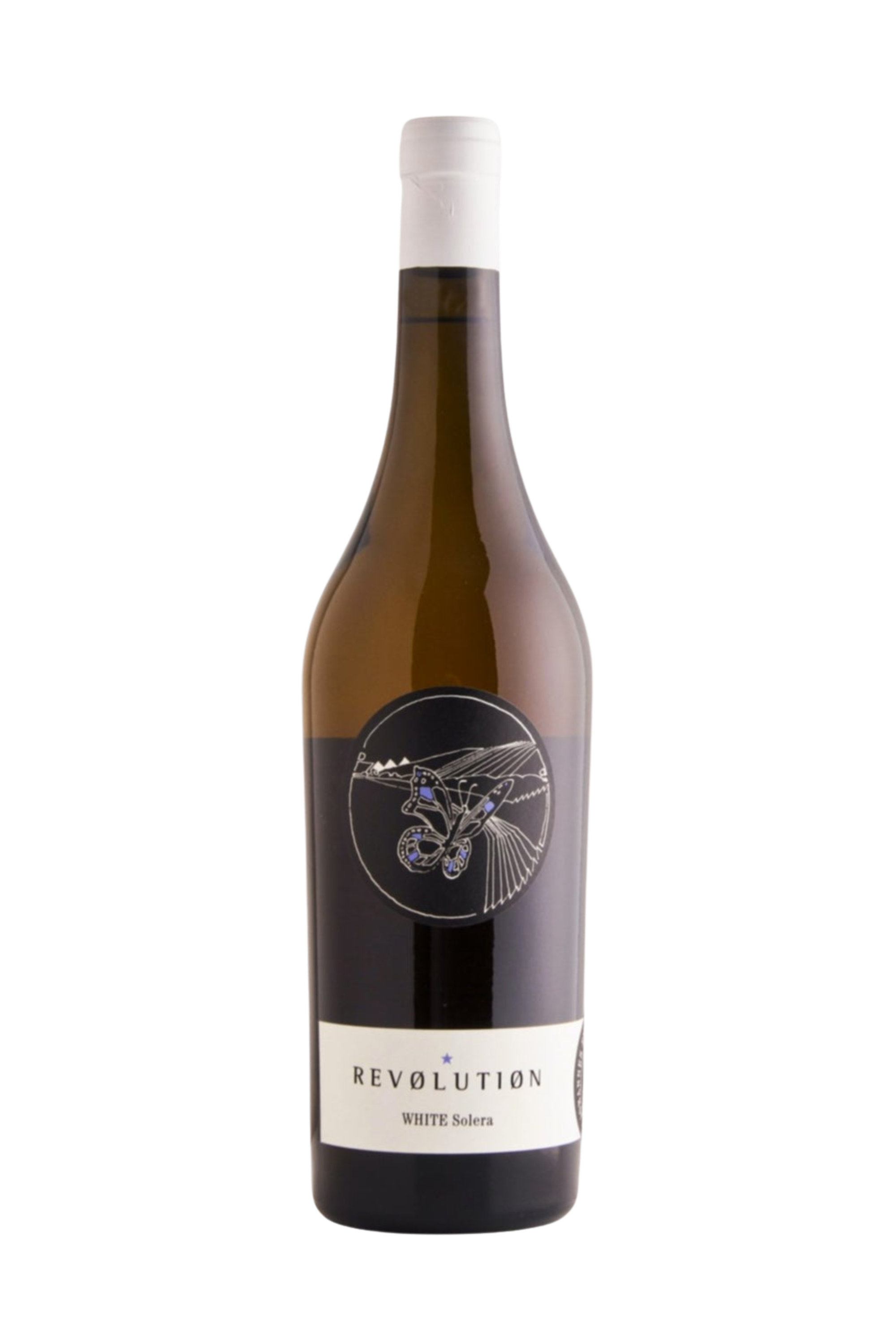
Johannes Zillinger 'Revolution' Solera White Wine
Johannes Zillinger’s Revolution wines focus on vintage blends using the solera system, amphorae fermentation, PiWi vines, short fermentations on the skins, and unlikely grape blends. These unique, non-vintage wines are an attempt to recognize terroir while minimizing the effect of vintage differences. The idea is to show a style of wine that has a similar character year to year. Much like a non-vintage Champagne, each bottling has a specific lot number; the last two digits of which identifies the base year for the blend. Perhaps most importantly, they are delicious!
The Revolution White bottled in 2022, is a blend of 50% Chardonnay, 25% Riesling and 25% Scheurebe, from 25–40-year-old hilltop vines planted on lime and sandstone soils. So far pretty normal, right? Here’s where it gets weird (and wonderful). Chardonnay, representing the base 50%, is all 2021 vintage and is fermented on the skins for about 10 days in 1000-liter clay amphoras. The Scheurebe, an aromatic hybrid-crossing, is first fermented using intra-cellular fermentation (ie. whole berry fermentation), then added to a solera dating back to 2017 kept in 600 liter Acacia barrels. This solera is then blended with a Riesling solera dating to 2013 and kept in stainless steel. The resulting wine is mouth-wateringly delicious, with notes of apples, herbs, peaches, and perfume on the nose. The palate is both textured and tensile, with mineral and smoky notes weaved into the juicy, fruity flavors.
Johannes Zillinger learned early on from his father about the craft of organic winemaking, about viewing the vineyard as a habitat and protecting the environment instead of poisoning it. His father Hans turned to organic viticulture in 1983 and was one of its pioneers in Austria. (That transition was just two years before the anti-freeze scandal, when a number of Austrian winemakers were found to have added diethylene-glycol to enhance the texture of their wines.) When Johannes took over the winery and made it his own in 2013, he took it ever further, transitioning to biodynamics and starting a new chapter for the 350 year old winery.
His wines are certified Demeter biodynamic, and Johannes believes wholeheartedly in the philosophy of biodynamic farming. He grows his own herbs for tea tinctures to use as treatments in his vineyards. The wines are all spontaneously fermented, lightly filtered, and minimally sulfured only at bottling. These are impeccably made wines with precision, structure, and balance no matter the vintage or cuvee. They are also absolutely delicious.
From Johannes: “For me, as a person and as a company, organic and biodynamic agriculture has always been a journey of ongoing development – a dynamic evolution as opposed to standing still. 36 years ago, my father Hans converted the estate to organic farming. Back in the day, the challenges he was facing were very different compared to the ones of today. Our everchanging climate with hotter summers, warmer winters and erratic precipitations is a proof for us that we have taken the right steps – if sometimes ahead of their time – in the past years and decades. It was a logical consequence for us to also adapt the vinification of our wines, sometimes significantly, sometimes slowly and gradually. Nowadays, we vinify more than 60% of them using large barrels and amphorae as compared to 90% in stainless steel 10 years ago. We always bear in mind that organic farming keeps our yields at a low yet consistent level but above all provides us with high quality grapes. The concept of origin, in our view, should not be limited to single vineyards but must include the signature of the individuals who shape the way of cultivating the land. We live in a cool climate region and it is our ambition to continue to produce cool climate wines - respecting climate change. In light of this, we believe it is time to update and upgrade our portfolio for this year and the years to come.”
